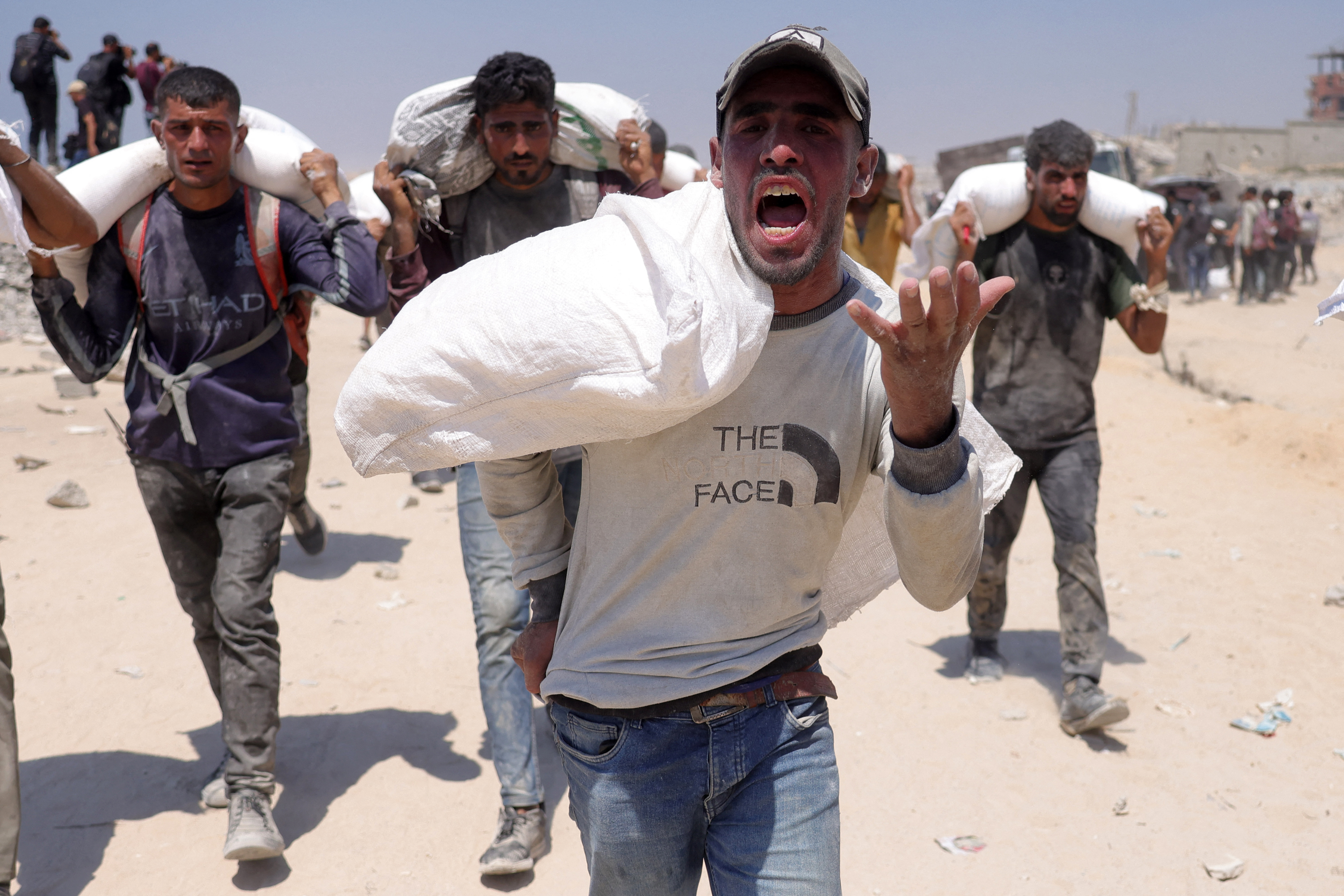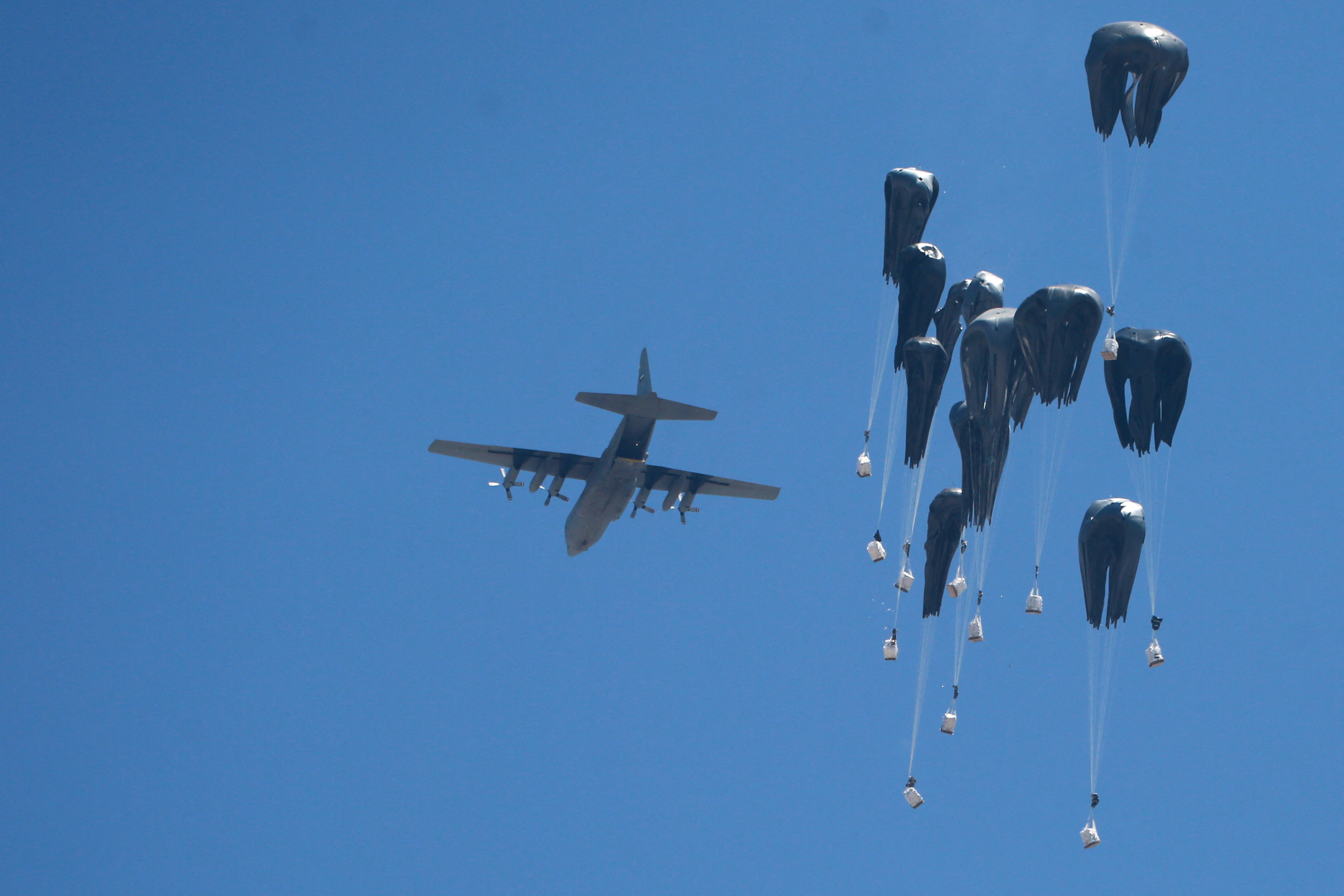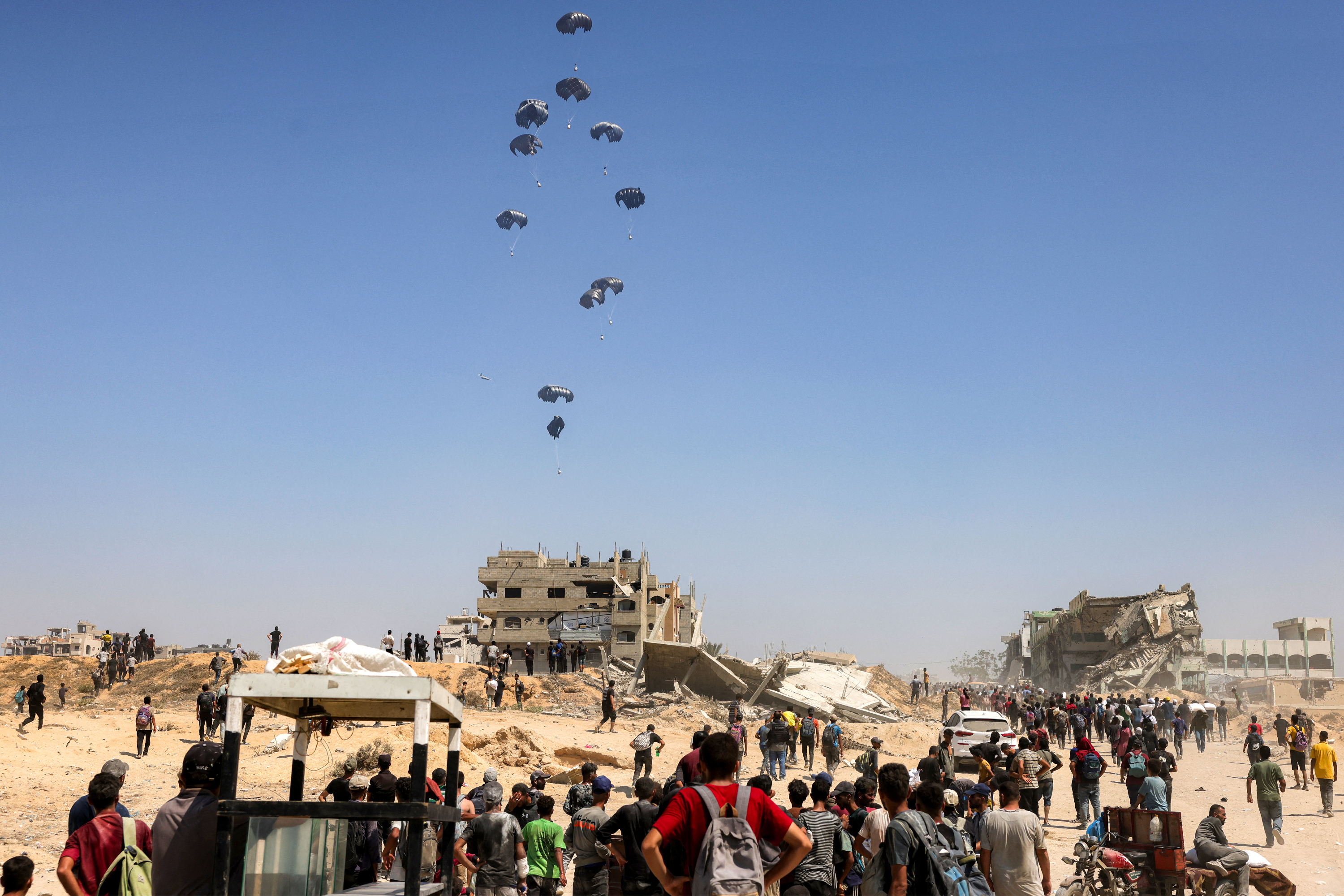The Gaza government accuses Israel of blocking 22,000 humanitarian aid trucks at border crossings and causing famine.

The Gaza government said Sunday that Israel is blocking the entry of 22,000 trucks of humanitarian aid accumulated at the Palestinian enclave's border crossings , while its citizens face a serious risk of famine.

A man after receiving sacks of flour delivered by trucks with humanitarian aid. Photo: AFP
In a statement, the Hamas-controlled Gaza government indicated that most of these trucks belong to international, multilateral, and other organizations, and that Israel "deliberately prevents their entry as part of a systematic policy of engineering hunger, blockade, and chaos."
"We condemn in the strongest terms the continued blockade, the starvation of civilians, and the withholding of aid, considering it a complete war crime that violates all international norms and treaties," the Gaza government said.
And it denounces countries "that remain silent or complicit in the worsening humanitarian catastrophe and the catastrophic consequences resulting from depriving the population of food, medicine, and fuel."
Therefore, it demands the immediate entry of all impounded trucks and the opening of border crossings without conditions "to save the lives of civilians in the Gaza Strip before it is too late."
Since the Israeli offensive against Gaza began following the Hamas attacks on October 7, 2023, 175 people have died from hunger or malnutrition, including 93 children, according to records kept by local health authorities.
Most of the deaths have occurred in recent weeks, following months of blocking humanitarian aid by Israel, which controls all access to the besieged territory.

A military transport plane drops humanitarian aid over the northern Gaza Strip. Photo: AFP
Between March 2 and May 19, the blockade was total , while the flow of aid is now very limited and insufficient.
UN agencies warned this week that Gaza faces a serious risk of famine : more than one in three residents goes days without eating, and all other nutritional indicators have reached their lowest levels since the conflict began.
Faced with this situation and growing international pressure, Israeli authorities announced "humanitarian pauses" in the fighting on some routes to allow the few aid trucks entering the enclave to distribute their cargo, although most of it ends up being looted by the desperate population.
According to humanitarian organizations, a minimum of 500 trucks (weighing about 25 tons each) should enter the Strip daily . According to official Israeli data, between 50 and 100 entered daily in June, and since Israel announced the pause a few days ago, 200 are entering daily.
Israel has also allowed air shipments of food to resume, although international organizations such as the UN refugee agency (UNRWA) have criticized these drops, calling them "expensive, ineffective, and insufficient," as one plane cannot transport the contents of a single truck.
In addition, the Gaza Humanitarian Fund (GHF), a US-backed food distribution agency supported by Israel in the enclave , operates four sites in the south and center of the Strip, compared to the approximately 400 previously managed by the UN.

Deployment of humanitarian aid by air to the Gaza Strip. Photo: AFP
Hundreds of Palestinians have died trying to access these distribution points, which require hours of walking to reach, announce their opening with less than an hour's notice, and close within minutes of opening because the aid runs out.
Furthermore, they are located in military zones controlled by the Israeli Army, which occasionally opens fire on the thousands of people who flock there in a desperate race to find food, as EFE was able to witness.
According to the Gazan health authorities, more than 60,000 people have died in the Palestinian enclave since the start of the Israeli offensive in October 2023, in a situation denounced as genocide by countries such as South Africa before the International Court of Justice (ICJ), a qualification that has also been used by international and Israeli human rights organizations.
eltiempo





